- Home
- Beryl Kingston
Gates of Paradise Page 2
Gates of Paradise Read online
Page 2
‘And there’s another thing,’ Mr Hayley cried, dabbing his soulful eyes, ‘here’s Mr Blake come and me not there to greet him. What will he think of me? It is most remiss. Most remiss.’
‘He’ll understand, I’m certain sure,’ the housekeeper said, ‘for I’m told he’s a Christian soul.’
‘The best,’ his patron cried, ‘and excellent company. Think how highly our dear Thomas regarded him. Our poor dear Thomas.’
‘Well, there you are then.’
‘I must set him to work at once,’ William decided, recovering into thoughts of philanthropic action, ‘and find others to offer him commissions. There is no time to lose if I am to establish him. I think I shall teach him to paint in miniature. That would be a great help to him. I see no reason why he should not make as good a living here as in London, if he engraves and teaches drawing to the right families and is prepared to make neat drawings of appropriate size. Of course, if he places any dependence on painting large pictures – for which, according to Mr Flaxman, he is not qualified, either by habit or study – he will be miserably deceived. Oh, most miserably. But he is a man of good sense and will be advised, I’m sure. Flaxman speaks well of him.’
The housekeeper was encouraged by his shift to cheerfulness. Maybe she wouldn’t have to reheat the warming pan after all. ‘Well, there you are then,’ she said again, standing back so that he could rise from his chair. ‘You just think what a lot you’ve got to look forward to now he’s come here. Always look forward, Mr Hayley, sir, that’s my advice. No point in looking back. That only brings grief. Now you try and get a good night’s sleep and then we’ll send young Johnnie to Chichester in the morning to get your papers and everything will look quite different by dinner time. You see if I’m not right.’
Chapter Two
April 17th 1852. Felpham
My dearest Annie,
I have just returned from my visit to Blake’s cottage, which was every bit as illuminating as I hoped it would be. It is a simple dwelling, thatched, as are all the cottages hereabouts, the thatch set high on the southern wall, where the windows give out to a fine prospect of the sea, but sloping low on the northern side to keep out wind and weather. There are three rooms on each floor, leading into one another in the cottage style, three bedrooms above and a kitchen and two other rooms below, with a spiral staircase hidden behind a cupboard door in the kitchen and a proper staircase rising steeply between the other two rooms. The door and windows on the ground floor are protected by canopies of thatch, which makes the rooms rather dark but the inside walls are cleanly whitewashed and there are stout brick chimneys to carry away the smoke from the fires and to accommodate the kitchen stove. The coastguardsman was hospitable and answered all my questions patiently, although like so many of the young men hereabouts he had no personal knowledge of his famous predecessor. But he showed me round the house and the garden, demonstrated the purity of the well water, preened when I praised his vegetable plot, and confessed that the place could be damp in bad weather and could ‘give you the rheumatics something chronic if you don’t watch out, which I daresay your poet feller found out.’
I took him across to the inn later to treat him to a pint of porter by way of thanks for his kindness and naturally we fell a-talking. He told me my friendly farmer had a brother who must have known ‘a fair deal about Mr Blake, on account of he worked up at Turret House and the two poets was very thick together, as I daresay you knows.’ I asked him where I could find this brother, assuming he still lives in the village, but he couldn’t tell me. All he knew was that he was a young man at the time and must have known a fair deal. A visit to Mr Boniface’s farm is indicated I think, for if there is something to be discovered from this brother, I must discover it, must I not.
Write to me soon, my dearest. I grow anxious if I do not hear from you.
This from your loving husband,
Alexander.
September 1800
Johnnie Boniface was a handsome lad, not quite eighteen but already tall and muscular with the strong arms and sturdy legs of his ploughman father and the wide brow, thick fair hair and gentle grey eyes of his mother Annie. Not that he paid much attention to his appearance. Even when he passed one of Mr Hayley’s great hall mirrors on his way into the house with the vegetables, he did little more than take a peak at himself to see that his neck-cloth was neat and his waistcoat buttoned, in case the housekeeper was there to see him and rebuke him for untidiness. Although she was more like to scold if he brought mud into the place. Very particular about mud was Mrs Beke. You had to leave your boots at the door and enter in your stockinged feet.
This morning she was in too good a humour for scolding. ‘You’re to take the cart to Chichester,’ she told him, ‘and get the papers for Mr Hayley. There’s a list of things I need from the haberdasher’s and one or two other errands, which I’ve written down for you, but you’re to be sure to buy the papers first. Betsy will go with you to choose the threads for I wouldn’t expect you to do that. Look sharp now. Mr Hosier wants you in the garden by midday to pick the last of the plums.’
She was talking to the air, for once he’d heard that he was to have company Johnnie Boniface was lost to everything else she said. His heart leapt in his chest like a caged bird. He was going to Chichester with Betsy Haynes. Betsy Haynes, the prettiest girl in the village who could take her pick from any unmarried man who looked her way, as most of them did. He’d been looking her way on every possible occasion ever since she first came to work at Turret House and now he was going to drive her into Chichester. He couldn’t believe his luck.
Then what a cramming of money and instructions into his pocket, what a rush to the pump, what a combing of unruly hair, what a scrubbing of earth-stained face, what a fidgeting wait by the pony’s head before she came tripping out of the kitchen, neat in her brown cotton skirt and her blue and white day-gown, with the prettiest white cap on her dark curls and the most becoming straw bonnet set over the cap, blue eyes the colour of forget-me-nots, pink cheeks as round and tender as a peach, sweet Betsy Haynes, soft and breathless in the translucent bloom of sixteen summers.
‘What luck!’ she said, as he handed her in to the cart. ‘I’m so glad it was you.’
The bird threw itself against the cage of his ribs fluttering wildly, but he took his seat beside her and tried to be nonchalant. ‘Are you?’ he said, picking up the reins and clucking to the pony. ‘Why’s that then?’
‘I got a purchase to make,’ she said mysteriously.
‘Who for?’
She gave him the full benefit of those bold blue eyes. Oh, she was such a flirt but she flirted so prettily. ‘That would be tellin’.’
The pony plodded them towards the church, where it turned, following the curve of the road without need of reminder. Johnnie pretended to be guiding it but his senses were in such a state of delicious alert it was all he could do to sit still. If the cart were to jolt a little he could put his arm round her waist to steady her. Imagine that. And when they were out into open country, where there were no eyes to see them, he might even try to kiss her. Imagine that. Meantime he must try to make conversation.
‘Shall I see it when ’tis purchased?’ he said. ‘Or is it to be hid away?’
She pretended to consider the question, glancing at him sideways and dazzling him with her eyes. What long soft eyelashes she had, as thick and dark as her hair, and eyebrows that curved like the flight of a seagull’s wings. Oh, Betsy, Betsy. You beautiful girl. Look at me again.
‘I’ll consider of it,’ she teased, ‘dependin’ on the time, an’ if it’s ready, an’ if we got the threads and the linsey woolsey.’
At which point the dear little amenable pony reached the village pound and the track to Chichester and missed his footing on the rough earth so that the cart gave a lurch and Johnnie was able to put out a happy arm to steady her, which naturally allowed him to tuck her against his side for protection. And oh, such a slender waist she had an
d such softly rounded arms and the smell of her sun-warmed skin was so enticing it made him feel dizzy.
‘Seven miles,’ he said happily.
The sun was already quite strong and the air was sweet with the scent of crushed wild thyme and spiced with the baked bread smell of the dusty stubble. As they plodded through the fields towards the distant spire of Chichester cathedral, which rose above the trees and tiles of the town, pale grey and bold as a bodkin against the misty blue of the September sky, a lark sprang up from the cornfield. They listened as it began to sing, sweet and sharp and with its familiar joyful abandon, and as song and flight rose to a blissful crescendo above his love-dazed head, Johnnie knew he had never felt so happy in the whole of his life.
‘Sussex,’ he said, ‘is the prettiest place in the world.’
That was Mr Blake’s opinion of it too. He and Catherine had walked for half a mile eastwards following the tattered edge of the beach, where the tamarisk trees leant sideways, their roots powdered with pale, dry sand. Sometimes there was an expanse of trodden earth to provide them with a pathway, sometimes there was barely any path at all and they had to clamber over the pebbles, but William was so entranced by the shifting patterns of the sea, the long stretch of honey-coloured sand and the extraordinary quality of the sunlight, that he didn’t notice what was under his feet.
‘It is a dwelling for the immortals,’ he said, stopping to scoop up a handful of dry sand and examine it intently. ‘Every grain of sand holds an eternity. The smallest pebbles catch light like fishes. We shall live here so happily, Catherine, shall we not, in our marine cottage, in the pure air, with skylarks singing hymns of joy each morning and the mundane shell of the sky in constant view. How could a man but be happy when the sun has risen so joyously?’
Catherine was wondering whether her loaf had risen sufficiently to be baked, for she was hungry after their long journey and they’d finished off yesterday’s loaf for breakfast, but she agreed with him that their happiness was assured and wondered whether they might not be turning back.
‘We must never turn back,’ her husband said. ‘Once the first steps are taken there is no turning back for any of us.’ But he agreed that they might have walked far enough for their first morning and that they shouldn’t leave his sister on her own for too long. ‘Tomorrow we shall all three explore the village, for I hear ’tis a pretty place, and perhaps we may walk out into the fields a little,’ he promised. ‘Then I suppose I should take a turn to Turret House and visit Mr Hayley. What good fortune, my love, that he has seen fit to be my patron. Oh, we shall do very well here. Very well indeed. I must look for a spade. The garden is much neglected and needs turning over. There is sure to be one somewhere about. And if not, I’m sure Mr Grinder will provide one. He seems a most obliging landlord. His ale was quite excellent this morning.’
‘I must find the best place to buy meat,’ Catherine said, ‘and where to go for such groceries as we need. Our stock of tea is very low and the sugar loaf has dwindled to nothing.’
‘There is a city close by,’ William said. ‘We will walk there in a day or two and see what may be found. Mr Hayley speaks highly of it.’
The city was extremely busy that morning and even more pungent than usual for it was the day of the cattle market and besides horses and carts, well-dressed riders and gaitered farmhands, the streets were full of frightened livestock and consequently spattered with dung and puddled with piddle. Johnnie and Betsy could smell it long before they reached the east gate, for they were immediately downwind. But they were well used to such farmyard smells and pressed on into the noise and effluvia without comment, secured the pony and cart outside the Nag’s Head and prepared themselves for their shopping expedition in their usual sensible way, Johnnie strapping on his gaiters to protect his stockings, Betsy pinning up her skirt and easing a good stout pair of pattens over her boots.
The newsagent’s was right in the centre of the town near the market cross and was so full of customers that it took some time for Johnnie to push his way to the counter. But The Times was duly bought and stowed away in his waistcoat and then they were off to the grocer’s for coffee beans, cocoa nibs and a sugar loaf neatly wrapped in blue paper, to the chandler’s for tallow candles and beeswax, and finally to the haberdasher’s for Chichester needles and coloured threads and the exact quantity of linsey woolsey that Mrs Beke had specified.
At which point Betsy said she must make her next purchase on her own, ‘being ’tis a secret.’ So Johnnie took himself off to the Nag’s Head for a pint of porter to slake his thirst and settled by the window to read the paper and watch for the return of his beloved. She was a long time gone, long enough for him to read all about the bread riots in London and how the Corn Market had been stormed and how handbills had been posted on the Monument, ‘instigating insurrection’.
He saw the scarlet cloth approaching through the massed blues and browns of the crowd long before he realised who was sporting it so boldly. At first he thought it was a soldier’s bright jacket but as it neared the window he realised that it was a woman’s cloak and that the face framed by its thick hood belonged to Betsy Haynes. ‘My stars!’ he said, as she swept into the inn and strode towards him, gathering admiration from every man in the bar. ‘Fancy you in a cardinal. You do look a swell.’
Her face was flushed with the warmth of her new garment and the triumph of its purchase. ‘I been savin’ for it for two whole years,’ she told him. ‘I’ve wanted it, and wanted it, for so long as I can remember. What d’you think of it?’
He thought it was the finest cloak he’d ever seen and that she was the prettiest girl in the town with her face framed by the bright cloth and her dark hair curling under the white frill of her cap, and he caught her by the hands as if he was going to pull her towards him and kiss her, which he might well have done if they hadn’t been in a public place and he hadn’t been afraid of being rebuked. But then the cathedral clock struck the hour to bring him back to his senses and to remind them both that they ought to be getting home, so he let go of her hands and tried to act with more decorum.
She took off her new possession and folded it carefully. Then she wrapped the resulting bundle in a length of brown paper and lowered it neatly into her wicker basket. ‘I shan’t wear it yet awhile,’ she confided. ‘I only put it on for you to see. ’Tis for high days and holidays and when the weather’s cold.’
‘Then I can’t wait for cold weather,’ he said, and was rewarded with a rapturous smile.
The return journey took longer than they expected, for halfway home they rounded a copse to find that their way was blocked by the massed backs of a flock of sheep, who having followed their leader through a gap in the hedge were now ambling about on the path in baaing confusion and wouldn’t get out of the way no matter how loudly Johnnie shouted or how much he waved his arms. It was more than half an hour before the noise he was making attracted the shepherd who arrived with a couple of dogs to tease his charges back to the meadow. ‘They got no sense in those funny ol’ heads,’ he explained,’ ‘’ave ’ee my woolly lovelies.’
‘Tha’s all very well,’ Johnnie said. ‘Now we shall be late back an’ Mrs Beke’ll have somethin’ to say about it, you just see if she don’t. I was s’pposed to be home midday to pick the plums.’
‘Never you mind,’ Betsy consoled. ‘She must know how sheep go on.’ And she put her hand through the crook of his arm and gave it a squeeze. Actually gave it a squeeze. He might not have found an excuse to kiss her yet, but what a jaunt this was turning out to be.
In the event Mrs Beke was still in good humour when they finally got back to Turret House and told them they’d done well and that the master would have good time to read the paper before his dinner. ‘Take it straight up to him,’ she said to Johnnie, ‘and then you’d best see to those ol’ plums, or Mr Hosier’ll have somethin’ to say, and we don’t want that. Go down to the kitchen and empty your basket, Betsy, and then you can come to my parlour an
d we’ll get the new petticoats cut and basted before the roast is done. We’ll just have time enough. Well, hop along then the pair of you.’
Johnnie went back to his proper work happily enough. It was pleasant out in the garden in the warmth of noonday with daydreams to fill his head and a good meal coming and the plums so ripe they fell into his hand. But only half of them had been picked when Betsy came running out into the garden to tell him he was wanted in the library.
‘Now what?’ Mr Hosier said crossly, wiping the sweat from his forehead with the back of his hand.
’If you please, Mr Hosier, sir, he’s wanted to run an errand.’
‘There’s never any peace in this house,’ the gardener complained. ‘There’s no sense in the man. How’s he s’ppose we’re to pick his plums, if we’re to run errands morning, noon and night? The way he go on nothin’ll ever get growed nor picked. ’Twill be no good him complainin’ when there’s no food for the table, which there won’t be if he keep on this way. Well, go then, if you must boy, but look sharp about it.’
So Johnnie set the laden trug in the shade of the plum tree and followed Betsy back to the house, where he left his boots and apron by the back door, and climbed the stairs to the library.

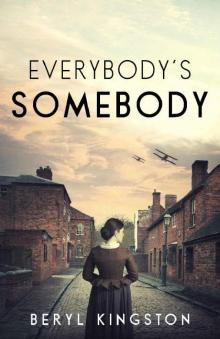 Everybody's Somebody
Everybody's Somebody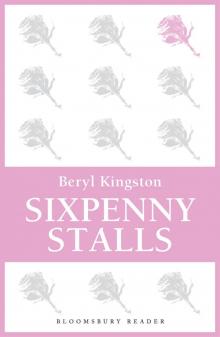 Sixpenny Stalls
Sixpenny Stalls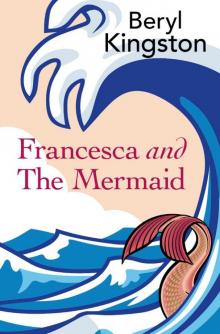 Francesca and the Mermaid
Francesca and the Mermaid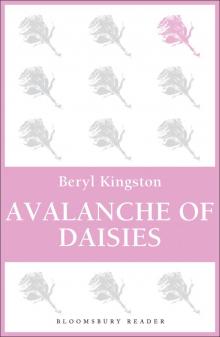 Avalanche of Daisies
Avalanche of Daisies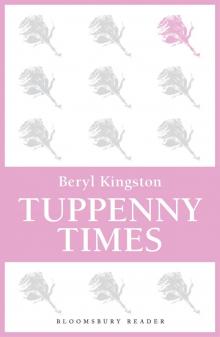 Tuppenny Times
Tuppenny Times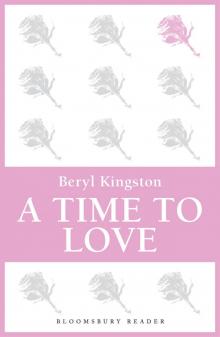 A Time to Love
A Time to Love Octavia's War
Octavia's War Gemma's Journey
Gemma's Journey London Pride
London Pride Gates of Paradise
Gates of Paradise Octavia
Octavia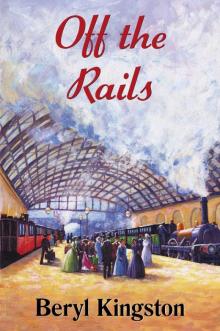 Off the Rails
Off the Rails Maggie's Boy
Maggie's Boy Fourpenny Flyer
Fourpenny Flyer